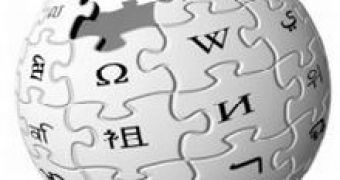Wikipedia is the largest encyclopedia in human history having more than 2.6 million entries in more than 10 languages. The concept behind Wikipedia is that anyone can write anything anywhere without being asked for any credentials. So, no wonder that it raises questions about the information accuracy.
More popular in became, more controversial. Is really a marketplace of ideas a good thing or one needs a qualified central control in order to obtain a trustworthy encyclopedia?
As one Wikipedia critic writes: "Do you really want to waste an hour updating an article on mathematics, only to have some high school student delete your equations - with his only explanation being that he felt they were too technical? [...] Sure, in theory, with plenty of editors, the website will be self-correcting and such mistakes will be addressed; but the reality is that it takes a very long time for inaccuracies to be fixed. [...] Unfortunately, if you rely upon the Wikipedia as a reference, you will inevitably get burned - and Allah forbid, what if people start referencing the Wikipedia's errors?? Since 90% of Wikipedia's fact-checking involves an Internet search, self-perpetuating errors are probably already occurring."
In the midst of this entire controversy, Nature magazine decided to see how accurate Wikipedia's entries in comparison to those of Encyclopaedia Britannica. They have found than, at least when it comes to science, Wikipedia's entries are almost equally reliable as Britannica's entries! Nature took stories from Wikipedia and Britannica on 42 science-related topics and submitted them to experts for review. The experts were not told which encyclopedia the stories were from. "The exercise revealed numerous errors in both encyclopedias, but among 42 entries tested, the difference in accuracy was not great: the average science entry in Wikipedia contained around four inaccuracies; Britannica, around three," according to Nature. The entries covered topics including Agent Orange, quarks and synchrotrons. "Only eight serious errors, such as misinterpretations of important concepts, were detected in the pairs of articles reviewed, four from each encyclopedia [?] but reviewers also found many factual errors, omissions or misleading statements: 162 and 123 in Wikipedia and Britannica respectively."
Moreover, Nature interviewed more than 1000 scientists who had published in Nature and asked them whether they were using Wikipedia. They found that 17% of them used Wikipedia on a weekly basis.

 14 DAY TRIAL //
14 DAY TRIAL //